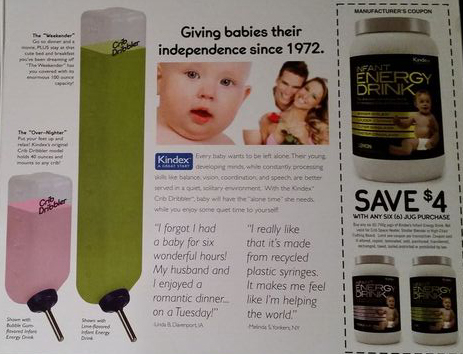Welcome to the Spot Writers. Today’s contribution comes from Val Muller, author of the kidlit mystery series Corgi Capers. Speaking of kids, Val just had one (!), and the story of her birth during an epic blizzard is one for the ages. She’s using this month’s prompt (“how could she do a thing like that?”) to tell the partial tale of the storm baby.
Stormborn
By Val Muller
“How could she do a thing like that? Is the baby really sending me into labor during the blizzard?” I clenched my fist against a coming wave of pain. “I need to call the doctor again.” I held the phone against my ear and eyed my unfamiliar surroundings. There I was, sitting on the floor in the bathroom of the apartment where I was staying—a master suite recently vacated by my friend’s college-aged son.
“Okay…” I could hear the panic in my husband’s voice, even through the phone. I imagined the look furrowed on his brow. “Okay,” he said again. That one word disguised a whole glossary of worry.
Just an hour ago, we’d had a much more pleasant conversation. He’d told me about his day—spent digging the house out from under the more than three feet of snow that had fallen thus far. I was partly glad that I’d chosen to stay with a friend in the city, away from the boonies where we lived. Not that I’d have been much help clearing snow at almost nine months pregnant. Not that I even would have attempted to help for fear of going into labor during the storm.
Instead, I’d spent the day watching TV and movies in a friend’s apartment—a friend who lived in the city, at the intersection of two emergency snow routes. You know, just in case. And yet, fate and winter seemed to be conspiring.
Silence deafened us over the phone line.
“I—I think I might be in labor,” I whispered.
“You think? You would know, though, wouldn’t you?” he asked. He sounded flat. Too flat, like he was trying to hide the emotion from his voice. What was he hiding? Worry? Disappointment?
I laughed. For months, I’d been saying I’d probably be one of those women who didn’t realize they were in labor until the baby was practically there. My pain tolerance had always been high, and despite everyone telling me that contractions were impossible to miss, I had my doubts.
“Do they still feel like cramps?” my husband asked. “Like they did this morning?”
“Yes,” I said. “But worse.” I paused. “And they’re coming in waves.”
“Oh.” He sighed. “But we were just at the doctor’s. What did he say? You had a five percent chance of delivering the baby during the blizzard. He said this would be a February baby, not a January one.”
I winced against more pain. “I’d better call.”
There was much I wanted to say, but there wasn’t time. How long would it take for 911 responders to get to me? I’d just seen a news story that with the exception of a woman who dropped dead while shoveling, all 100+ calls for hospitalization had all made it safely to the hospital during the blizzard.
The silence on the other end of the line was terrible. It screamed that my husband was afraid of missing the birth of his first child. But the pain reminded me there was no time for sentimentality. This was time for action. I hung up the phone.
My friend was in the living room, blissfully watching TV, unaware of my personal and painful struggle in the next room over. A few minutes later, after a quick call to the doctor, I stepped into the living room with a nervous laugh. My friend looked up from the television.
“What’s wrong?” she asked.
“The doctor said I need to call 911 and get to the hospital,” I managed before doubling over with a painful contraction.
“Wow, really?” She picked up the phone, and her eyes bulged out. Though we both knew this was a possibility—after all, that’s why I decided to stay with her in the city rather than stay with my husband in the country—we doubted it would come to this.
And yet, here we were.
After the call to 911, the evening took on a surreal quality. Maybe it was the pain, or maybe it was too close to midnight after a week of fitful sleeps and little appetite. But as the firemen entered the living room—one, two, three, four, seven, more…—my mind flashed with a delirious thought. I imagined the firemen entering the room to music, almost like the Thunder From Down Under show I’d seen advertised while visiting Las Vegas. There they were, suspenders and gear shining in the living room’s fluorescent lighting.
Several of the firemen and EMS workers introduced themselves to me, but everything blurred. I answered the same medical questions over and over again while my mind entertained itself with its Vegas-style show, thus disguising the worsening pain. One of the responders escorted me through the freshly-dug path to an awaiting heavy-duty SUV, which they needed to get me to the ambulance that was waiting on one of the main roads.
The ambulance ride was bumpy—the roads were at least passable, but barely. After getting stuck and circumventing abandoned cars, the ambulance finally made it to the hospital with worsening contractions that were only two minutes apart. The last thing I remember asking the responders on the ambulance was whether I should tell my husband to try to get to the hospital from the boonies. They warned me not to—that they had been hearing calls for side-of-the-road rescues all night, and even the best consumer-grade SUVs were getting stuck. He would miss the birth, but at least he would be safe.
What can I say? Worse things could have happened.
It was a long night, but at just before 7 in the morning, the sun came up and filled the delivery room with a golden light almost tangible, like magical liquid floating on the air. The sky cleared, and the horrible blizzard of 2016 was done. Golden sun shone against bright blue sky made more beautiful by contrast of the stark white blanket the snow had left behind. And something else had emerged that night: my daughter.
It was a long, rough night—but well worth it in the end.
The Spot Writers–our members:
RC Bonitz: rcbonitz.com
Val Muller: https://valmuller.com/blog/
Catherine A. MacKenzie: http://writingwicket.wordpress.com/wicker-chitter/
Tom Robson: Blog pending



 Today I had the chance to chat with fellow Barking Rain Press author Jennifer Leeper. Jennifer is the author of Padre: The Narrowing Path (description at bottom of post), a book I very much enjoyed. Check out Jennifer’s advice on finding inspiration for writing. Then,
Today I had the chance to chat with fellow Barking Rain Press author Jennifer Leeper. Jennifer is the author of Padre: The Narrowing Path (description at bottom of post), a book I very much enjoyed. Check out Jennifer’s advice on finding inspiration for writing. Then, 